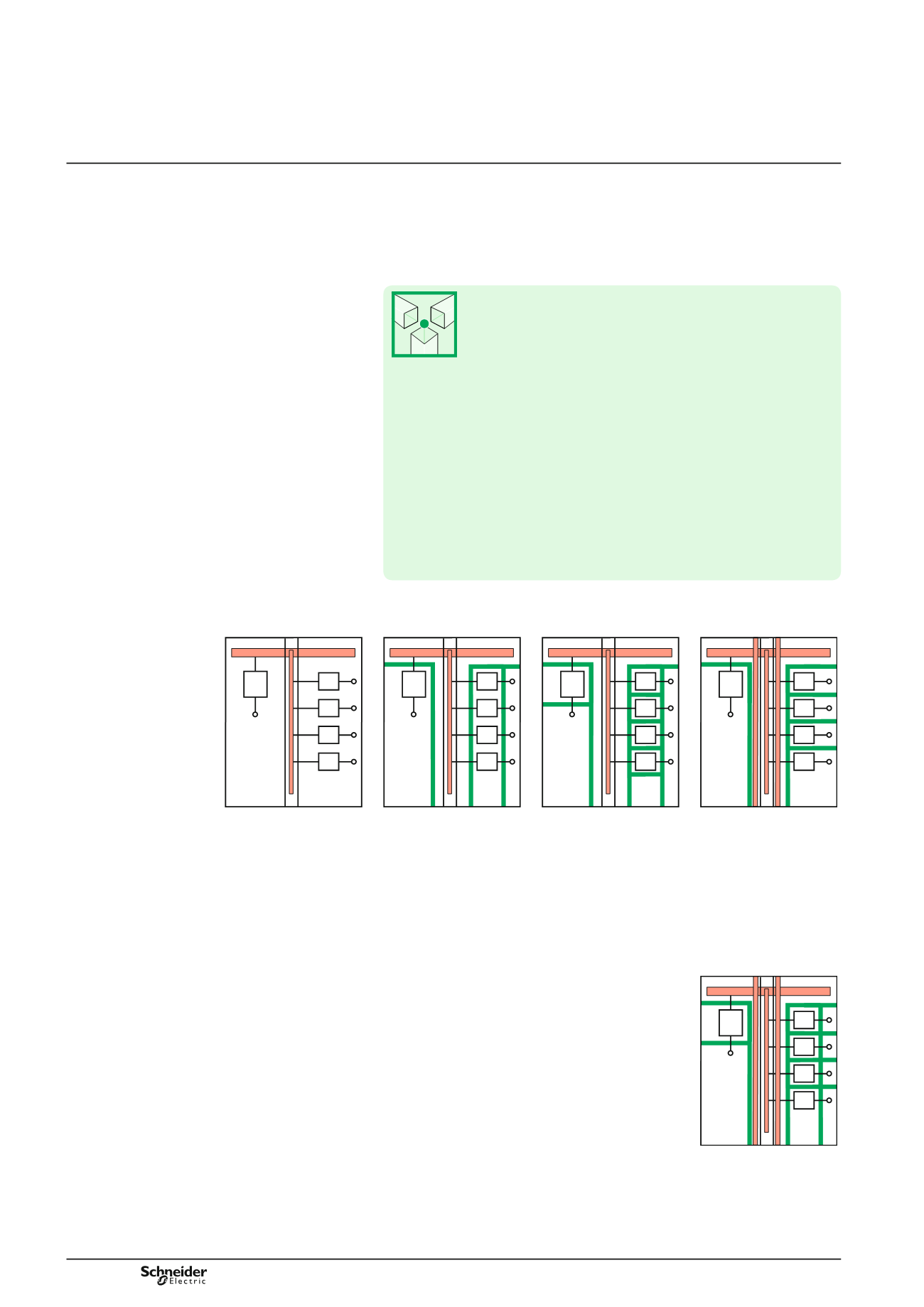

306
Spacial SFP
Prisma functional system
Introduction
The forms according to IEC 61439-1&2
Decisions concerning the Form of separation and the
degree of protection are the subject of an agreement
between the manufacturer and the user.
In most installations, Spacial SFP cubicles do not require
partitioning.
In this case, the switchboard is a Form 1.
Safety being one of its foremost goals, Schneider Electric offers
options and features that go well beyond the recommendations
of the standard.
The protection of life and property is a standard feature due to:
b
b
front plates that require a tool to be removed
b
b
keylocks on doors, some of which provide access to live parts
b
b
the systematic installation of terminal shields on Compact NSX
circuit breakers and Compact INS and INV switch-disconnectors
b
b
covering of the upstream and downstream terminals on the
incoming device so that operators are perfectly safe at all points
in the switchboard when the incoming device is off (open).
What is more, Spacial SFP offers different levels of partitioning
to create separations inside the cubicles and thus create Form 2b,
3b, 4a and 4b electrical switchboards. Electrical switchboards must
meet the degree of protection IP2X to comply with standard
IEC 61439-1&2.
Form 1
Form 2b
Form 3b
Form 4a
Form 4b
In most installations, Spacial
SFP cubicles do not require
partitioning. In this case,
the switchboard is a Form 1.
Safety being one of its
foremost goals, Schneider
Electric offers options and
features that go well beyond
the recommendations of the
standard.
b
b
Terminals for external
conductors separated
from busbars.
b
b
The functional units and
the terminals are separated
from the busbars.
b
b
Terminals for external
conductors separated
from busbars.
b
b
The functional units are
separated from each other
and from the busbars.
b
b
The terminals are
separated from the busbars,
but not from each other.
Terminals for external
conductors in the same
compartment as the
associated functional unit.
Terminals for external
conductors not in the same
compartment as the
associated functional unit,
but in individual, separate,
enclosed protected spaces
or compartments.


















